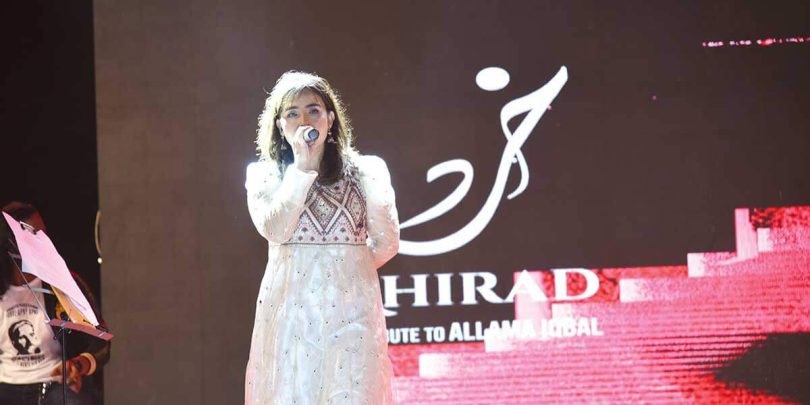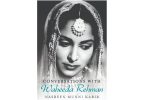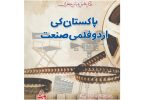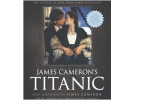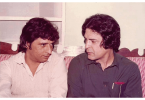Natasha Baig’s name doesn’t need any introduction for the Sufi-rock singer has made a name for herself in a short span of time. Ever since she sang Shikwa Jawab e Shikwa in Coke Studio Season 11, her fan following has been increasing on daily basis. Her popularity reached a zenith when she chose to release her debut album Zariya in 2020, which can be counted as one of the very few highlights of the music scene during Covid-19.
Last week, Natasha Baig released her second music album Khirad at Karachi’s Arts Council where the who’s who of the TV and music industry were present to support her. Be it prominent actor Khaled Anum or legendary singer Tina Sani, renowned anchor Dino Ali or music director Sohail Haider, TV actress Naeema Butt or Fuzon bandmembers Emu and Shallum, the presence of these stars ensured that there was no shortage of support for Natasha Baig on the big occasion.

Even those who had no links to music like entrepreneur Mush Panjwani, educationist Rasheed Noorani, publicist Tehmina Khaled, politician Jibran Nasir and TV host Anoushey Ashraf graced the event with their presence. It was great to see veteran pop star Shehzad Mughal amongst the audience as well, for he has been an inspiration for most of the musicians that came after him, and tried to emulate him one way or the other.
What made the audience take note of Khirad was Allama Iqbal’s association, as a poet/lyricist. All nine songs in the album were composed around Allama Iqbal’s poetry, and despite being nearly a century old, they didn’t look dated at all. It was a brave move for a singer who has been around for less than a decade, but it was inevitable ever since Natasha introduced the younger generation to Shikwa Jawab e Shikwa in 2018. Her understanding of the poetry, her perfect pronunciation, and her limitless energy on stage were the reasons why she was able to pull off the concert, as well as give her second music album the launch it deserved.

Hosted by renowned actor, director, and standup comedian Faheem Azam, the show began with the screening of music videos of three of the songs in the album – Darte Darte, Zamana, Wajood e Zan. In the first two, it was Natasha Baig singing alone on the screen in front of either beautiful scenery, or in front of a dark background, while in the third one, renowned female personalities appeared to pay a tribute to the ‘women’ of Pakistan.
From those who had left us like Benazir Bhutto, Sabin Mahmud, Parveen Rehman, Asma Jehangir, Arfa Karim to those who are making Pakistan proud including Hajra Yamin, Zhalay Sarhadi, Dua Malik, Kusloom Aftab, Frieha Altaf, Srha Asgr and Rabya Kulsoom Rehan, Wajood e Zan ensured that the audience knew that being a woman in a man’s world is not easy. It was both a tribute and a message to those in attendance and those watching it online that there is more to Wajood e Zan than just beauty.
The message was conveyed well because the audience then clapped for the star of the night when Natasha finally came on stage to perform the remaining songs. It would be an understatement to say that Natasha Baig mesmerized the audience with her live rendition, for the audience wanted more (specifically of Jaahil Hoon Main) and by the time she sang Ne Mohra, they were charged up for more.
Out of the nine songs in the album, Natasha sang six live, and not for one moment, her energy level dipped. She had the support of an outstanding band that was led by her younger brother Sameer Baig besides others. Without taking a break, she sang Khirad and followed it up with Justujoo, Parda, and Jugnu but the response she got from the crowd after she sang Jaahil Hoon Main was priceless. Not only was she made to sing the song again, but she also involved the crowd in the second rendition, who didn’t disappoint her when she pointed the microphone towards them, and they responded the way she wanted them to.
And then there was Ne Mohra which featured a mix of poetry in Urdu and Persian but was made grand due to its Arabic composition. Add to that Natasha’s live rendition and it was the best way to end the proceedings. However, she did have a surprise for the audience at the end of the night, and that was singing a few lines from Shikwa. It was a great gesture since many in the audience were secretly hoping that she would recreate the magic somehow, which she did.
In a country where only Junoon (Khudi) and Shehzad Roy (Ya Rab and Khudi Ka Sirr e Neha) have been the only attempts revolving around Allama Iqbal’s lyrics, Natasha Baig’s foray into uncharted territory was both brave and calculated. Brave, because she knew that it would either make her career or break it, and calculated because she knew that those fans who made her Shikwa Jawab e Shikwa a world-famous entity, would be waiting for her if she came up with something on the same lines.
One hopes that Natasha Baig’s second album starts a trend where the youth of Pakistan take a liking to the works of the man who dreamed about the country, rather than just celebrating his birthday every November. In the past vocalists like Madam Noor Jehan, Mehdi Hassan, Mujeeb Alam, and Naheed Akhtar brought Iqbal’s poetry to their listeners on TV, but with the resurgence of pop music, that trend became extinct. Through Khirad, Natasha has tried to tell the audience that there is more to the words of Allama Iqbal and if through these songs, even one person gets attracted to Kuliyat-e-Iqbal, that’s a win-win in my book.

